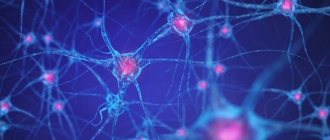Last year, the Aizorel publishing house published a new book by V.P. Gocha and V.G. Minasyan "Tablets of Wisdom". In it, the authors of the Book continue the study of Totality, issues of ontognoseology of the Universe and the Path in it. In essence, new knowledge is being created based on the study of ultimate transitions in the Universe, which actualizes the qualitative transition of all things into the New Being through the methodology of transformation on the basis of Totality.
Science in its classical presentation is the experience of cognition of private existence. Knowledge itself contains Truth, but it must not only be comprehended, but also revealed. When transmitting any knowledge, it is important to own the Truth - after all, it is it that will show the way to wisdom.
Non-classical total science
Traditional science has exhausted the possibilities of the dominant trend of narrow specialization of knowledge, and its methodological apparatus has turned out to be untenable.
Science is faced with a dilemma: to consciously, purposefully and consistently study the elements of the World (in particular, life and man), or to build knowledge of a different order, based on the study of the universe as a Totality - the creation of Non-Classical Total Science (NTS). How does the scientific approach of NTN differ from traditional scientific research? NTN proposes a holistic approach to understanding and developing the methodology of interaction, which consists of developing new methodological tools for cognition and transformation of reality, opening up the possibilities of conscious cooperation. Non-classical total science raises the question of the need and possibilities of a scientific approach in explaining human spirituality. The means of spiritual comprehension of the world are theory, practice, method and methodology with the help of which a person organizes his life. The totality of nonlinear features of human thinking cannot be described using classical ontological and logical paradigms. The new reality requires a new ontology and logic of thinking. The philosophy of Totality is based on ontognoseology and total-causal methodology. The goal of the ontognoseological process is the realization of life, and the essence is comprehension.
The disclosure and comprehension of Totality brings scientific knowledge to the ultimate foundations in the study of the World in general, and the human world in particular. These are not limits in the mathematical sense, and not the limits voiced in the new philosophy of globalism by Toffler, Fukuyama or Huntington. In the new teaching, limits are conceptualized not as the final turning points, but as points of transition to yet unknown aspects of co-creation and co-existence of man with the Creator. And these meanings and principles enter into human existence as unique states and are realized by man’s relationships both to the human world and to the Human world.
Ethical Egoism
▪️ The definition of ethical egoism is one of the most controversial in this topic. It is believed that each person should pursue his own interests, and the totality of interests of people in society thus becomes an incentive for the improvement of society as a whole. But this theory is utopian and is possible only in some ideal world, where all aspirations are subordinated to one goal.
As an example, we can cite the socialist system, and especially the one that now exists in the Asian region of our planet. Probably everyone is familiar with common moral values, standards of material well-being and other signs of socialism. Such egoism can only exist in an artificially created space.
▪️ In order to look after your interests and strive for personal well-being, thus developing the entire society, you need to think the same way. This can only be achieved through total propaganda and education of an entire generation (and possibly several generations) of people with a certain way of thinking.
▪️ In a normal state, ethical egoism is impossible, since there is a constant clash of interests even at a small, everyday level. As an example, we can take the behavior of different groups of people - motorists, pedestrians and cyclists. Their interests are in constant conflict and interaction is possible only by observing strict rules. Complete and absolute well-being for each of these groups is possible only with the elimination of competitors.
The theory of ethical egoism does not tolerate compromise, but in real life this is impossible. Therefore, the concept of ethical egoism is considered untenable and rather theoretical.
The Totality methodology solves many problems
- Improvement of the nation.
Which, accordingly, leads to savings in public funds for healthcare. - The formation of a new person
- a creative person, in whom the ability to create something new is implicit. A creative person is able to accept creative potential and bring it to life. - Formation of consciousness as a social instrument.
Implementation of the principle of mass cooperation. - Revealing a business as a service
- it becomes a sacred source, and a person becomes a bearer of good. This helps solve environmental problems and restore the ecology of the environment.
Causes
Selfishness and its manifestations most often begin and first appear in childhood and adolescence.
The main cause of selfishness is the incorrect behavior of parents, manifested by:
- in a possessive attitude that does not allow the child to realize himself as an individual;
- in excessive care, which interferes with learning independence;
- in a selfish attitude set as a bad example;
- in lack of attention, depriving the child of gaining basic skills of social communication and interaction.
Wisdom
Wisdom is the sacred experience of Being, which is acquired through the methodology of Totality.
Real wisdom is syzygic rationality, the meaning of which is the comprehension of the ontic-ontological Unity of the Thing as an independent Reality and an object of knowledge. Then in everything you see you will find wisdom, truth and total metamorphoses. The mentality of leaders is formed, first of all, by the mentality of the people and time. Next comes knowledge, which teaches the leader and the people wisdom. Such Wisdom exists in Russian folk tales, and the child receives it with his mother’s milk. The methodology of Totality is new knowledge with the help of which the future of both an individual and the people as a whole is formed.
The public consciousness of Russia has Wisdom. It has gone through the greatest metamorphoses, ensuring development that is incomprehensible to the West.
Public consciousness can be assessed by the perception of events in the country and in the world, by the way of participating in them, by the ability to act in truth, which, together with the creativity of the people, raises their creative potential. It is the public consciousness of Russia that has undergone the greatest metamorphosis, ensuring development that is incomprehensible to the West, despite sanctions and information attacks. The future is open to the people who have Wisdom and act in paradox, and information attacks are not scary.
History of the term in philosophy
The term "egoism" began to be used in the 18th century. The Age of Enlightenment aroused the interest of thinkers in defining the universal principles of human existence. Philosophers actively developed not only the very concept of egoism, but also actively identified individual manifestations closely related to it - hedonism and reasonable egoism.
The concept of hedonism, the center of which was pleasure, was introduced into circulation by the ancient Greek philosopher at the turn of the 5th-4th centuries BC. e. Aristippus. The desire for pleasure implied manifestations of egocentrism, con. Hedonism gained its greatest popularity in the 18th century.
In the modern era, the problem of selfishness has attracted much attention. Economic, social, political changes required personal reassessment. In the XVII-XVIII centuries. The French thinker C. A. Helvetius and the Dutch philosopher B. Spinoza introduced a new term into circulation - reasonable egoism. It was developed in more detail in the second half of the 18th century. Russian philosopher N. G. Chernyshevsky.
In the 20th century rational egoism became widespread thanks to the interest of the philosopher Ayn Rand. In his interpretation, this term is inseparable from rationalism and objectivism, and these are mandatory qualities of a progressive personality.
In the middle of the 20th century. The phenomenon under consideration begins to be studied from the standpoint of genetics. Soviet geneticist V.P. Efroimson argued that selfishness has a genetic basis and is inherited as an effective means of survival for an individual, developed in the process of evolution.
Reality
The reality that a person sees and what decisions he makes depend on the level of consciousness.
A person projects his understanding of reality into social activities. Public consciousness can be assessed by the perception of events in the country and in the world, by the way of participating in them, by the ability to act in truth, which, together with the creativity of the people, raises their creative potential. Reality is an endless and eternal continuum of metamorphoses of self-transcendence of meditation of consciousness, controlling the present from the future through the original and the past. Reality without the transformation of meditation is a theater of private life, where meditation is the scenery of a substitute for life, and time is a plasma top.
How to overcome selfishness?
Conquering selfishness in adulthood is not easy and it is almost impossible to eradicate this trait from the character of another person. Selfishness develops gradually and begins in childhood. People are selfish by nature, and in what direction the development of this quality will be directed depends on upbringing. Motivation for change can only come from deep feelings, life shocks and a rethinking of one’s existence.










